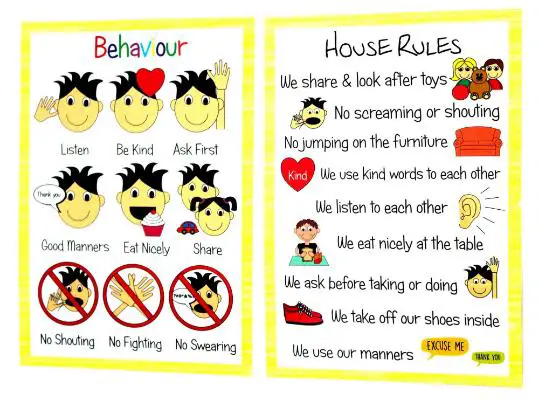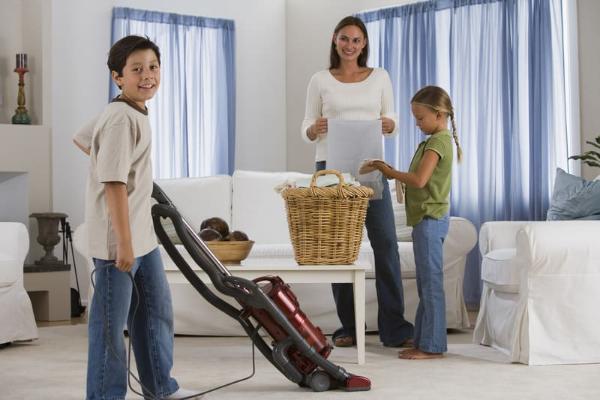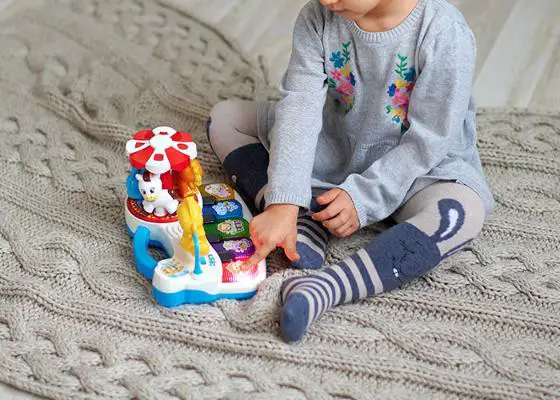Having rules at home helps everyone know what’s expected and keeps things running smoothly. Just like how we follow rules at school or on the playground, we also have rules at home to make sure everyone feels safe, respected, and happy. These rules are like guidelines that help us understand how to treat each other and take care of our home.
In this guide, we’ll explore some essential house rules for kids and why they are important. Remember, rules are there to help us all live together happily and peacefully.
When do kids learn to read? Explore our guide for insights and answers.
What Are Some Good House Rules For Kids?

House rules for kids are important for creating a safe and harmonious environment. Here are some good house rules focusing on respect for others, responsibility, and safety:
Respect For Others
- Use kind and polite words when speaking to others in the house. Saying “please” and “thank you” shows respect.
- Listen when someone is speaking to you without interrupting. Everyone’s thoughts and feelings matter.
- Share toys, games, and other belongings with siblings or friends.
Sense of Responsibility
- Help out with household chores such as setting the table, taking out the trash, or folding laundry. Everyone in the family has a role in keeping the house tidy.
- Complete homework and school assignments on time.
- Take care of personal belongings by keeping them organized and tidy.
Safety
- Running inside can lead to accidents. Walk carefully to avoid tripping or bumping into things.
- Use tools, utensils, and equipment properly and safely. Handle knives, scissors, and other sharp objects with care.
- Follow safety rules at home, such as not playing with electrical outlets, not climbing on furniture, and not touching hot stoves or appliances without supervision.
These rules create a positive atmosphere where everyone feels valued and safe. Remember, consistency is key in enforcing these rules, and parents should lead by example to reinforce these behaviors in their children.
General House Rules Examples

Here are some general house rules for kids with examples:
Listening to Others Without Interruption
- Listening without interrupting shows respect for the person speaking. It makes them feel valued and important.
- When kids listen carefully, they can better understand what others are saying. This makes communication smoother and helps avoid misunderstandings.
- Waiting for our turn to speak teaches patience. This skill helps in many areas of life, like waiting in line or taking turns in games.
Read more to explore Listening Activities For Kids if you are a passive listener in educational settings but struggle to retain information due to distractions.
Completing Chores
- Chores teach kids to take responsibility for their homes and belongings. They also show them that being part of a family means helping out.
- Learning to do chores teaches valuable life skills, such as cleaning, organizing, and time management. These skills will help kids become independent adults.
Following Safety Guidelines
- Following safety guidelines helps prevent accidents and injuries. It keeps kids safe when they are playing, doing chores, or using tools.
- By following safety rules, kids learn to be aware of potential dangers in their environment. This awareness helps them make smart choices to stay safe.
Using Nice Words
- Using nice words helps build positive relationships with family, friends, and others. It shows that we care about their feelings.
- Kind words have the power to brighten someone’s day and spread happiness. They create a positive atmosphere at home and in the community.
- When kids use nice words, they set a good example for others to follow. It shows that they value kindness and respect in their interactions.
Respecting Privacy
- Respecting privacy builds trust between family members and friends. It shows that we respect their boundaries and trust them to have their own space.
- Giving others privacy allows them to have time alone to relax, think, or do things they enjoy. It’s an important part of fostering independence and self-reliance.
Keeping Things Safe
- Taking care of belongings helps protect them from damage or loss. It also ensures that items last longer and can be enjoyed for a longer period.
- Keeping things safe and organized creates a tidy and orderly home environment. It reduces clutter and makes it easier to find things when they are needed.
Helping with Household Tasks
- Helping with household tasks teaches kids to take responsibility for their homes and belongings. It shows them that being part of a family means pitching in and helping out.
- Working together as a family to complete tasks fosters a sense of teamwork and togetherness. It creates opportunities for bonding and spending quality time together.
Using Things Carefully
- Using things carefully reduces the risk of accidents or injuries. It helps kids avoid mishaps when playing, doing chores, or using equipment.
- Handling items with care helps protect them from damage or breakage. It ensures that belongings last longer and can be enjoyed for an extended period.
What to Do in Emergencies
- In an emergency, it’s crucial to stay calm and think clearly. Panicking can make the situation worse.
- Kids should know how to seek help in an emergency, whether it’s calling 911, finding an adult, or alerting neighbors.
- Kids should follow any instructions given by adults or emergency responders to stay safe and help others.
By teaching kids these important concepts and skills, parents can help them become responsible, respectful, and safety-conscious individuals who contribute positively to their families and communities.
House Rules Example For Common Areas

Here are some house rules for kids, with examples for the common areas:
Living Room
Cleaning Up After Use
After using the living room for activities like playing games or watching TV, everyone should tidy up by putting away toys, blankets, and other items in their proper places.
Sharing Common Items
Teach your kid to share common items like remote controls, magazines, and gaming controllers among family members.
Being Mindful of Noise Levels
Encourage everyone to be mindful of noise levels in the living room, especially if others are reading, studying, or relaxing nearby.
Kitchen

Cleaning Up After Meals
After meals, everyone should clean up their dishes, wipe down countertops, and sweep or mop the floor as needed.
Seeking Permission Before Using Appliances
Kids should ask for permission before using kitchen appliances like the stove, oven, or microwave.
Practicing Kitchen Safety
Children should learn essential kitchen safety habits, like using oven mitts for hot dishes, ensuring pot handles are away from the stove’s edge, and handling sharp knives with caution.
Bathroom
Keeping the Area Clean and Tidy
Everyone should make an effort to keep the bathroom clean and tidy by wiping down sinks, countertops, and the toilet after each use.
Being Mindful of Water Usage
Encourage everyone in the family to conserve water by keeping the faucet off while brushing their teeth, opting for shorter showers, and avoiding unnecessary water waste.
Proper Hygiene Practices
Remind all individuals to maintain good hygiene practices, including washing hands with soap thoroughly after using the restroom and before handling food.
Implementing and reinforcing these house rules in common areas promotes a harmonious and hygienic household environment where everyone can feel comfortable and respected.
Rules For Kids For Their Personal Spaces

Check out these good rules for kids for their personal spaces:
Bedrooms
Keeping Rooms Tidy
Children should make their beds and put away clothes and toys to keep their bedrooms neat and organized.
Respect for Privacy
Kids should respect each other’s privacy by knocking before entering siblings’ bedrooms and asking permission before borrowing items.
Limiting Screen Time
Set limits on screen time in bedrooms to promote healthy habits and better sleep quality. Encourage alternative activities like reading, drawing, or playing games that don’t involve screens.
Study Areas
Creating a Quiet Study Environment
Designate a quiet area for studying that is free from distractions like loud noises or electronics.
Setting Time for Homework and Study
Establish a consistent study schedule for completing homework and studying for tests or exams.
Staying Organized
Encourage children to keep study materials, such as textbooks, notebooks, and pencils, organized and easily accessible.
Play Areas
Cleaning Up Toys After Playtime
Teach children to clean up their toys and put them away after playing to maintain a safe and tidy play area.
Sharing Toys and Space
Encourage sharing toys and play space with siblings and friends to foster cooperation and social skills.
Using Play Equipment Safely
Remind children to use play equipment, such as swings or slides, safely and according to the manufacturer’s instructions.
Parent Rules And Consequences For Breaking Rules

It is important to follow set rules, and in case your kid takes these rules for granted, let them know about the consequences of breaking them:
Logical Consequences
When kids break the rules, it makes sense for the consequences to match what they did wrong. For example, if they make a mess, they might need to clean it up. This helps them understand why their actions were wrong and how they affect others.
Time-Outs
If a child does something wrong but it’s not too serious, they might need a short break to calm down and think about what they did. This break is called a time-out. After the time-out, parents talk with the child about what happened and how they can do better next time.
Loss of Privileges
Sometimes, when kids break important rules, they might lose out on fun things they like to do, like playing video games or going out with friends. This helps them see that breaking the rules has consequences and encourages them to think twice before doing it again.
Restitution
If a child does something wrong that affects someone else, like breaking a toy, they should make it right. This could mean apologizing or helping to fix what they broke. It teaches them to take responsibility for their actions and make things better.
Parental Guidance and Support
Along with consequences, parents should talk to their children about why their behavior was wrong and how they can make better choices next time.
By using these approaches, parents can help their children learn important lessons about behaving well and being responsible.
Tips To Create Your List Of House Rules

Check out some effective strategies for creating a comprehensive list of household rules:
- Allow Input
Encourage children to offer their input when creating household rules, fostering a sense of ownership and cooperation.
- Lead by Example
Demonstrate adherence to the rules yourself to set a positive example for your children.
- Consistent Enforcement
Enforce rules consistently to underscore their importance and promote accountability.
- Explain Exceptions
Provide explanations for exceptions to rules, helping children understand special circumstances.
- Acknowledge Mistakes
Take responsibility for your own mistakes to reinforce the importance of accountability.
- Visible Posting
Display the list of rules prominently in a common area for easy reference by all family members.
- Explain the Reasoning
Offer brief explanations for each rule to help children understand the rationale behind them.
- Establish Consequences
Clearly outline consequences for breaking the rules promoting learning and responsibility.
- Regular Review
Review and adjust household rules as needed to accommodate changing family dynamics and needs.
- Positive Language
Frame rules in a positive light whenever possible to promote a constructive and encouraging atmosphere.
By incorporating these strategies and rules, you can foster a harmonious and respectful household environment where everyone feels valued and responsible.
